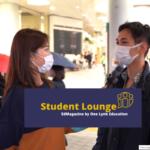
Mindfulness and meditation at Munich University of Applied Science and the Ludwig Maximilian University of Munich

The Munich Model, offered at the Munich University of Applied Science and the Ludwig Maximilian University of Munich, offers students the opportunity to get more in touch with themselves and at the same time encouraging them to incorporate these practices into their future professional work.
The course, offered since 2010, has been created by Prof. Dr. Andreas de Bruin as just a one-off course on „meditation“ in the social work degree program, but over the years it has developed into a comprehensive course offering on „mindfulness and meditation.“
Students are graded and get credit points. Each semester, 150 students from up to 24 degree programs take part in its courses integrated into the curriculum through its regular courses, though additional programs are also offered for alumni, faculty and staff.
Students can participate in courses and experience different ways of meditation such as sitting meditation with a focus on breathing or the use of mantras. The exercises involved are the inner reciting of a mantra, integrating sutras (official teachings), or a meditation with self-compassion, walking meditation or mindfulness exercises like mindful cooking or eating.
The theoretical aspects of the courses cover scientific research, background knowledge about the different approaches of meditation and their fields of application.
The course is graded based on attendance, regular participation, keeping a personal meditation journal, and a written reflection on how mindfulness and meditation can be meaningfully offered and implemented in future professional contexts. Students are recommended to practice the exercises presented in class at home. Then they record their experiences in their meditation journal. These meditation diaries provide insight into the effects of the course on its participants.
The benefits of the Munich model from the past ten years are now visible after evaluating the meditation diaries of two thousand students. The program has helped participants to cope better with everyday challenges, the general pressure and the heavy workload sometimes experienced during the studies. The students could handle stressful situations better and evaluate them more neutrally, more objectively. It is proven that the students could handle minor disagreements more constructively.
Additionally, the students learnt through practical exercises to understand and respect others and their opinions. It is also apparent that the experiences have positively impacted self-efficacy as well as creativity and inspiration.
The survey of the participants uncovered that 86% of students believe that meditation in the university offers rewarding enrichment and should be offered more extensively.
All these benefits are even more useful since the beginning of the pandemic as students deal with more pressure and anxiety during their studies and everyday life.
The experiences, testimonials and the review of the first ten years of the Munich model have been recently published in a book “Mindfulness and Meditation at University – 10 Years of the Munich Model” by the founder of the method professor Andreas de Bruin.
























